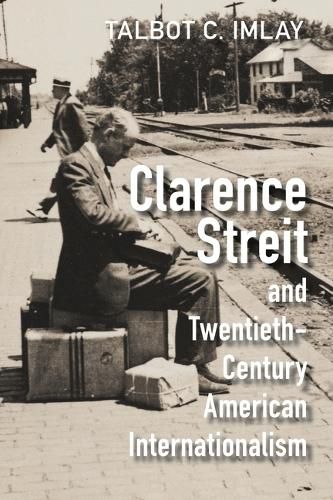Readings Newsletter
Become a Readings Member to make your shopping experience even easier.
Sign in or sign up for free!
You’re not far away from qualifying for FREE standard shipping within Australia
You’ve qualified for FREE standard shipping within Australia
The cart is loading…






In this illuminating and comprehensive account, Talbot C. Imlay chronicles the life of Clarence Streit and his Atlantic federal union movement in the Unites States during and following the Second World War. The first book to detail Streit's life, work and significance, it reveals the importance of public political cultures in shaping US foreign relations. In 1939, Streit published Union Now which proposed a federation of the North Atlantic democracies modelled on the US Constitution. The buzz created led Streit to leave his position at The New York Times and devote himself to promoting the union. Over the next quarter of a century, Streit worked to promote a new public political culture, employing a variety of strategies to gain visibility and political legitimacy for his project and for federalist frameworks. In doing so, Streit helped shape wartime debates on the nature of the post-war international order and of transatlantic relations.
$9.00 standard shipping within Australia
FREE standard shipping within Australia for orders over $100.00
Express & International shipping calculated at checkout
In this illuminating and comprehensive account, Talbot C. Imlay chronicles the life of Clarence Streit and his Atlantic federal union movement in the Unites States during and following the Second World War. The first book to detail Streit's life, work and significance, it reveals the importance of public political cultures in shaping US foreign relations. In 1939, Streit published Union Now which proposed a federation of the North Atlantic democracies modelled on the US Constitution. The buzz created led Streit to leave his position at The New York Times and devote himself to promoting the union. Over the next quarter of a century, Streit worked to promote a new public political culture, employing a variety of strategies to gain visibility and political legitimacy for his project and for federalist frameworks. In doing so, Streit helped shape wartime debates on the nature of the post-war international order and of transatlantic relations.